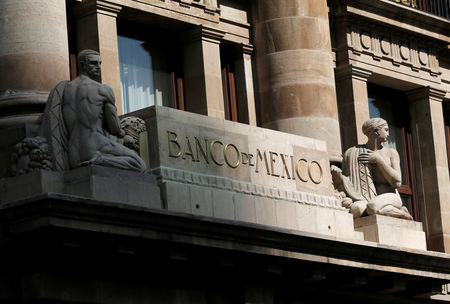

Investing.com — As the United States considers a 25% tariff on imports from Canada and Mexico, the two countries face critical decisions on how to respond to this potential trade shock. .
Analysts at BofA Securities warned that the tariffs, if implemented, could escalate into a full-blown trade war, with significant economic impacts for all three countries.
The proposed tariffs, expected to be signed into effect on January 20, would target all imports from Canada and Mexico. The US justified the move as a way to address its trade deficits, which are large with the two neighbors.
However, the interconnectedness of these economies complicates matters. Approximately 30% of Canada’s GDP and 40% of Mexico’s GDP are tied to trade with the US, underscoring both countries’ heavy dependence on their southern neighbor.
BofA analysts have flagged a critical difference in the capacity of the Bank of Canada and the Bank of Mexico to mitigate the economic fallout of a trade conflict.
Both institutions operate under inflation-targeting frameworks but face different limitations.
The Bank of Canada is positioned to adopt an accommodative stance, potentially cutting interest rates to offset economic stress.
With Canada’s inflation rate currently at the 2% target and core inflation measures equally strong, the Bank of Canada has the flexibility to support the economy by easing monetary policy.
Such action would also weaken the Canadian dollar, which would help prevent a blowout in Canadian exports.
In contrast, Mexico’s central bank faces tighter constraints. Headline inflation in Mexico stood at 4%, above the Bank of Mexico’s 3% target, and core inflation remained elevated.
Long-term inflation expectations are unanchored, further limiting the Bank of Mexico’s ability to lower rates. BofA analysts project that the Bank of Mexico will continue to be cautious, with modest rate cuts already in its 2025 forecast.
While both countries are likely to retaliate with targeted tariffs, the report suggests avoiding escalation may be more beneficial in the long run.
Mexico, for example, has already shown a willingness to comply with US demands by imposing its own tariffs on Chinese goods to address concerns about being a conduit for Chinese imports.
Similarly, the two countries have stepped up efforts to address US concerns about drugs and illegal immigration, key conditions tied to the proposed tariffs.
Although BofA Securities considers the imposition of tariffs unlikely, given these mitigation measures, the risks cannot be ignored.
For Canada and Mexico, the choice is between measured retaliation and proactive diplomacy to avoid economic collapse.
For both countries, prioritizing economic stability while protecting long-term trade relations with the US will remain the ultimate challenge.






